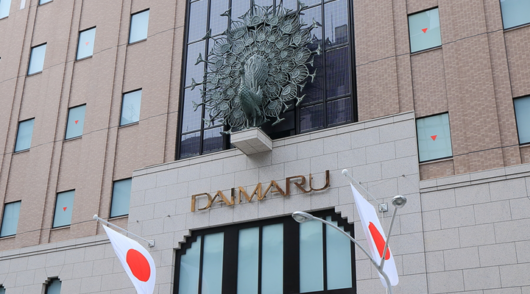While Australian retail’s annual peak season may have dawned, “a perfect storm of challenges” has created an extremely difficult time for retailers who are facing higher overheads and falling spending as consumers adapt to the cost of living crisis.
However Paul Zahra, CEO of the Australian Retailers Association, still sees room for optimism despite the current climate.
“It is important to remember that crises drive innovation,” he told Inside Retail. “Retailers who are prepared to adapt to the current economic landscape will be best positioned to succeed.”
The current environment challenging retailers has been well documented: a spending slowdown and rising costs of doing business.
“With the cost-of-living crisis and a sharp increase in interest rates over the past 12 months, shoppers are increasingly conscious of spending less, and shopping strategically to save money by searching for the best deal,” said Zahra.
Most categories are recording significant declines now compared with 2022, according to the Australian Bureau of Statistics, as households across Australia are saddled with mounting bills and expenses.
“That has come at the worst possible time for retailers, who are simultaneously grappling with rising costs across the board; rent, labour, insurances, utilities and materials,” said Zahra.
“Consumer sentiment is stuck at recessionary levels, making it extremely difficult for retailers to prosper. And all of this is taking place whilst retailers also navigate the largest set of government reforms in decades and a retail crime wave that is impacting the well-being of workers and the bottom line of companies.”
How retailers are successfully responding to such challenging times will be among the key themes of the upcoming ARA Leaders Forum 2024 to be held in Sydney on February 21-22.
Innovative, strategic responses reflect how it is vital for retailers to go above and beyond to retain and attract new customers, said Zahra.
“Promotions and offering value are a big part of this, especially during a cost-of-living crisis. Shoppers want to know that they’re receiving a great deal that is hard to come by. If they believe they’re getting a bargain, they’ll be less likely to feel buyer’s remorse.
“Loyalty, incentive and rewards programs are also an important part of the picture. A retained customer is a lower-cost option than attracting a new customer. Above all else, establishing a sense of loyalty and a sense of connection with shoppers will make them more likely to return – even amid a cost-of-living crisis,” he explained.
It stands to reason that when a customer feels valued by a retailer for their continued business, they’ll be more likely to return.
Zahra also believes it is essential that retailers appeal to consumer values. “The most successful businesses will be those that prioritise ethical production practices and sustainable materials.
“Consumers are looking for companies that prioritise ethical labour standards, adhere to environmental expectations and support their local communities. They want to know that their purchases are making a positive impact on the world. ”
Seamless experiences
Meanwhile, with the pandemic having reshaped consumers’ approach to shopping online, customers have now come to expect a seamless, integrated experience across all channels, from social media to mobile apps to physical stores.
“Whilst the vast majority of purchases remain at an in-store level, an omnichannel experience remains the holy grail of retail. No longer is it enough for retailers to have a brick-and-mortar store or even just an online presence,” said Zahra.
“Customers want the ability to browse products, make purchases, and interact with brands in whatever way is most convenient for them. Whether that means shopping on their mobile phone during their commute, using social media to discover new products, or visiting a physical store to see products in person, customers expect a consistent experience across all channels.”
He said a great omnichannel experience can build customer loyalty and increase the likelihood of repeat business.
The silver bullet?
One of the key themes of the upcoming NRF Big Show in New York in January will be the increasing role that Artificial Intelligence (AI) and other technologies are playing in retail, with NRF events typically showcasing cutting-edge retail technology unable to be seen anywhere else in the world.
“With intense competition in today’s retail sector, integrating technology and customer experience isn’t just a trend—it’s a survival strategy. AI could be the silver bullet that retailers are currently looking for: the ability to reduce costs and improve service.
“AI is rising to the top of retailer’s innovation list – with large and small businesses considering how they might take advantage of the growth opportunities and cost efficiencies that may stem from this tech. For many, it is a watching brief as the full potential of AI is still yet to be known and there are many privacy considerations within its use that are also top of mind for retailers.”
As AI continues to develop, Zahra sees more and more applications in day-to-day retail tasks.
“AI will allow retailers to predict trends and behaviours, giving them the tools to proactively shape their strategies. AI algorithms can analyse vast amounts of data to forecast buying patterns, helping retailers optimise inventory, tailor marketing campaigns and enhance customer experiences. ”
The “latest and greatest” innovations
The ARA will be heading to the NRF Big Show in January, which Zahra describes as “a fantastic opportunity to learn about and witness first-hand, the latest and greatest technological developments set to make retail more appealing and productive”.
The ARA will be sharing insights into innovation and technology gained in New York with Australian retailers during the ARA Leaders Forum 2024 in February.
“Overseas markets are typically ahead of the curve on technological developments due to geography. Retailers overseas have more financial incentive to roll out and introduce technology due to having a bigger market, and a faster return on investment.”
February’s forum – for the first time a two-day event – offers an unprecedented opportunity to hear first-to-market data trends, innovative insights from industry experts and the opportunity to network with influential retail executives across the country.
“We’ve gathered the best and brightest global experts and Aussie leaders to talk about what AI means for retail, how to achieve growth in a tough economy and how some of the leading brands are cultivating customer obsession,” concluded Zahra.
“I know many in our community can’t make it to the NRF Big Show in NYC next year. The good news is you can catch all the must-see moments at our event.”
- To view the full program of the ARA Leaders Forum 2024 – and purchase your tickets – visit the ARA website retail.org.au.






